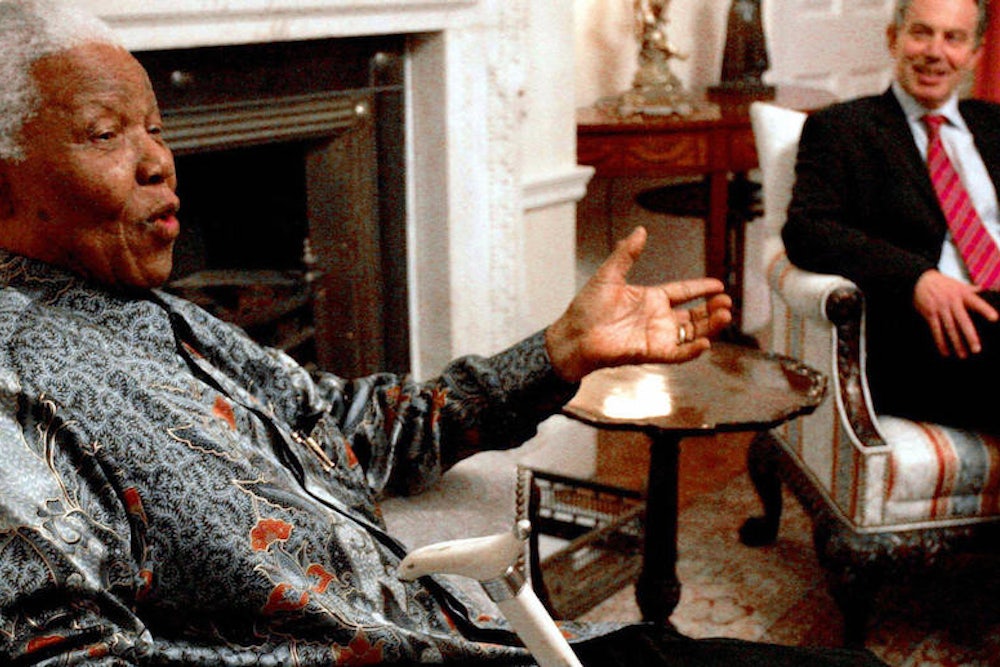A number of commentators on the left (myself included) have indulged in a bit of, well not exactly Schadenfreude, but perhaps a bit of gleefulness over one side effect of Nelson Mandela's death last week. The side effect is that we have been able to read all the remarkably silly and even sinister things that major right-wing figures—from Ronald Reagan to William F. Buckley—said about South Africa or Mandela during the apartheid years. (Jordan Michael Smith has a taste here.) But just because a bunch of people said stupid things about one of the century's most amazing men does not mean that Mandela didn't make some grievous errors in judgement. He lauded Fidel Castro and Qaddafi. He stayed much too quiet about Robert Mugabe's actions in Zimbabwe. And he was an apologist for the diamond industry, which has done great harm, through its unwillingness to submit to international regulation, to numerous countries throughout Africa.
Mehdi Hasan makes a couple of these points in his Huffington Post piece on Mandela, but then engages in a different variety of Schadenfreude. It turns out that many of the world leaders who lauded Mandela also carried out policies that Mandela found distasteful. Thus, Hasan seems to find great irony in the fact that Tony Blair thinks Mandela is a great leader but Mandela did not approve of the Iraq War. (The irony escapes me.) Moreover, although Hasan doesn't seem to realize it, the quotes he has dredged up make Mandela, rather than Tony Blair or George Bush, look bad:
[He accused Bush of] "wanting to plunge the world into a holocaust...All that [he] wants is Iraqi oil."
He added, according to a we-told-you-so-style report from Think Progress, that the Bush administration had sidelined Kofi Annan during the run-up to the Iraq war, and that, "[America' never did that when secretary-generals were white," which manages to sound offensive and embarrassingly ahistorical. In the case of Afghanistan, meanwhile, Mandela essentially stated that he supported the idea of going after Al Qaeda, but only if innocent people were not harmed. In practice, this is called pacificism, which Mandela rightly shunned for the vast majority of his life. He also stated, rather fatuously, that "The labeling of Osama bin Laden as the terrorist responsible for those acts before he had been tried and convicted could also be seen as undermining some of the basic tenets of the rule of law." (I seem to remember many apartheid leaders being labeled as murderers and criminals even though they had never faced trial.)
Hasan says of all this that, "Rather than remember and mourn for Mandela only as a saint, we should remember and celebrate him as a radical. To do otherwise is to do a disservice to his struggle for freedom and justice beyond South Africa's borders." [Italics his] It's true that some of Mandela's more radical stances, which these left-wing commentators are anxious to remind people about, are honorable: The Iraq war deserved to be blasted, even if not in the manner Mandela did, and it's good to know of his committment to ending poverty and supporting organized labor. But Mandela could also sound just as obtuse as other people who write and speak about politics. He was far from perfect, which in its own way makes his remarkable accomplishments all the more stirring.
